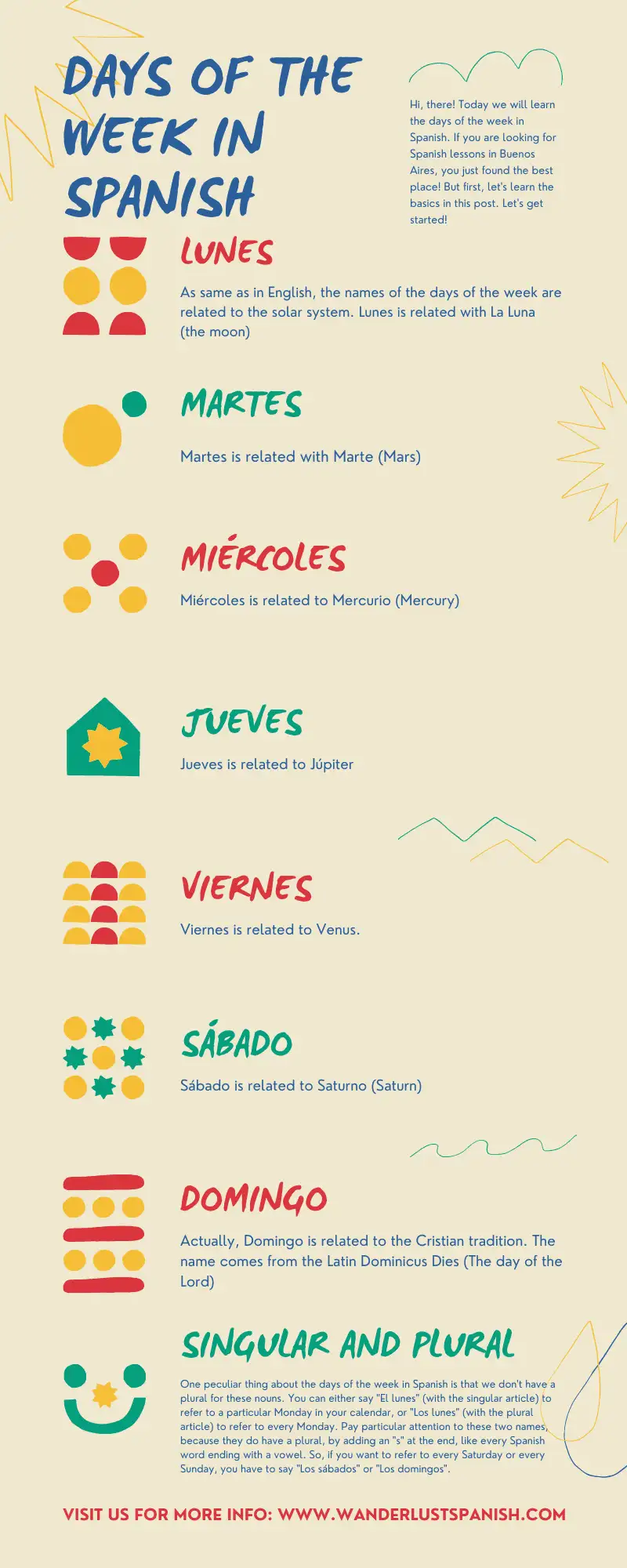Hey, there! Do you want to talk Business Spanish Vocabulary like a native speaker? So take one of our trial lessons and know the culture and language of our continent. Let’s begin!
Why Spanish?
Contents
Above all, Spanish is an important global business language, and if you’re a global player then you’ve got to know it like a pro. So, Wanderlust Spanish online will teach you how to speak and write business and conversational. How? By listening and repeating examples. And also, by getting in touch with the slang of the world of work.
However, we know maybe you’ll work with English speakers. But, when you live in a foreign country, it’s always extremely helpful know the basics of this world. On one hand, because it’s a way to showing respect to the culture. On the other hand, because you’ll hear these words not only in your job, but in life. When you buy, when you pay, when you call for a fix in your flat. That’s why we wrote this post, to help you in this sense.
Firstly, in the modern world, many businesses operate on a global scale. The ability to communicate effectively with international organizations is essential. In addition, as the second most commonly spoken native language in the entire world, the Spanish language has an important role to play. Its prevalence means that it is often used as a lingua franca. For this reason, knowledge of the kind of Spanish used in business situations is extremely valuable to companies. This applies whether they carry out the majority of their business in Spanish or not. Therefore, studying business Spanish can improve a person’s career prospects, regardless of where in the world they are located.
And because we know at present one of the best ways to work is by being a digital nomad, all this learning gains more importance. Actually, at present, cities like Buenos Aires or Medellin are top-rated in the ranking of Digital Nomads life.
Key phrases to improve your Business Spanish Vocabulary
So, these 5 key phrases will make sure you know what kind of business or work contract you’re agreeing to with an employer or business!
1. estar contratado/a — to have a contract
2. jornada completa o parcial — full-time or part-time schedule
3. contrato fijo/indefinido — a permanent work contract
4. contrato temporal — a temporary or short-term work contract
5. prácticas — internship

Specific terms
There are a lot of things to learn to do business in a Spanish-speaking country or even at home. This isn’t the be all end all list. However, these words are commonly used in meetings all over. These are general phrases, as industry-specific phrases and vocabulary will follow.
| Bear market | Bolsa bajista |
| Bull market | Bolsa alcista |
| Blue-chip stocks | Valores de primera clase |
| Board of directors | Junta directiva |
| Bond | Bono |
| Buyer | Comprador/a |
| Cash market | Mercado al contado |
| Cash on delivery (COD) | Pago contra entrega |
| Chamber of commerce | Cámara de comercio |
| Commission merchant or agent | Comisionista |
| Common carrier | Transportista común |
| Confirmed irrevocable letter of credit | Carta de crédito irrevocable y confirmada |
| Consumer goods | Bienes de consumo |
| Debt | Deuda |
| Delivery date | Fecha de entrega |
| Delivery point | Punto de entrega |
| Distributor | Distribuidor/a |
| Due date | Fecha de vencimiento |
Financial Industry
So, here are a few keywords to know for the financial industry. You’re still going to have to deal with basic financial language (whether you’re buying a home, getting auto insurance, or trying to obtain your credit report).
Industria financiera – Financial industry
Tarifa ajustable —–Adjustable rate
Anualidades —–Annuities
Seguro de coche—-Auto insurance
Informe de credito—-Credit report
Tasa de interes—–Interest rate
Hipoteca—-Mortgage
Bienes raíces—-Real estate
Acciones—-Stocks
Bolsa de Valores —-Stock market
Jubilación——Retirement
Impuesto—Tax
Slang
Specifically, in Buenos Aires, there are some words that can be used in the world of works, but not by the companies. These are the words you can use with your co-workers in order to talk about the job. And when you look for a job.
Laburo – job
Sueldo – salary
Jefe/Jefa – boss
Compañeros/ Compañeras – co workers
After – Beers after your workday
In conclusion, we’ll be happy to help you with improving your Spanish. Remember that learning Spanish is not only gains a new skill, it’s also being able to see the world from another point of view. That’s why we love so much to teach Spanish. Besides, we really love languages.
So, if you want to learn more about this, contact us. Because you can try our free class of 30 minutes to get to know us. And if you like it, schedule the best times for you to start in this race. Hope to see you soon!









